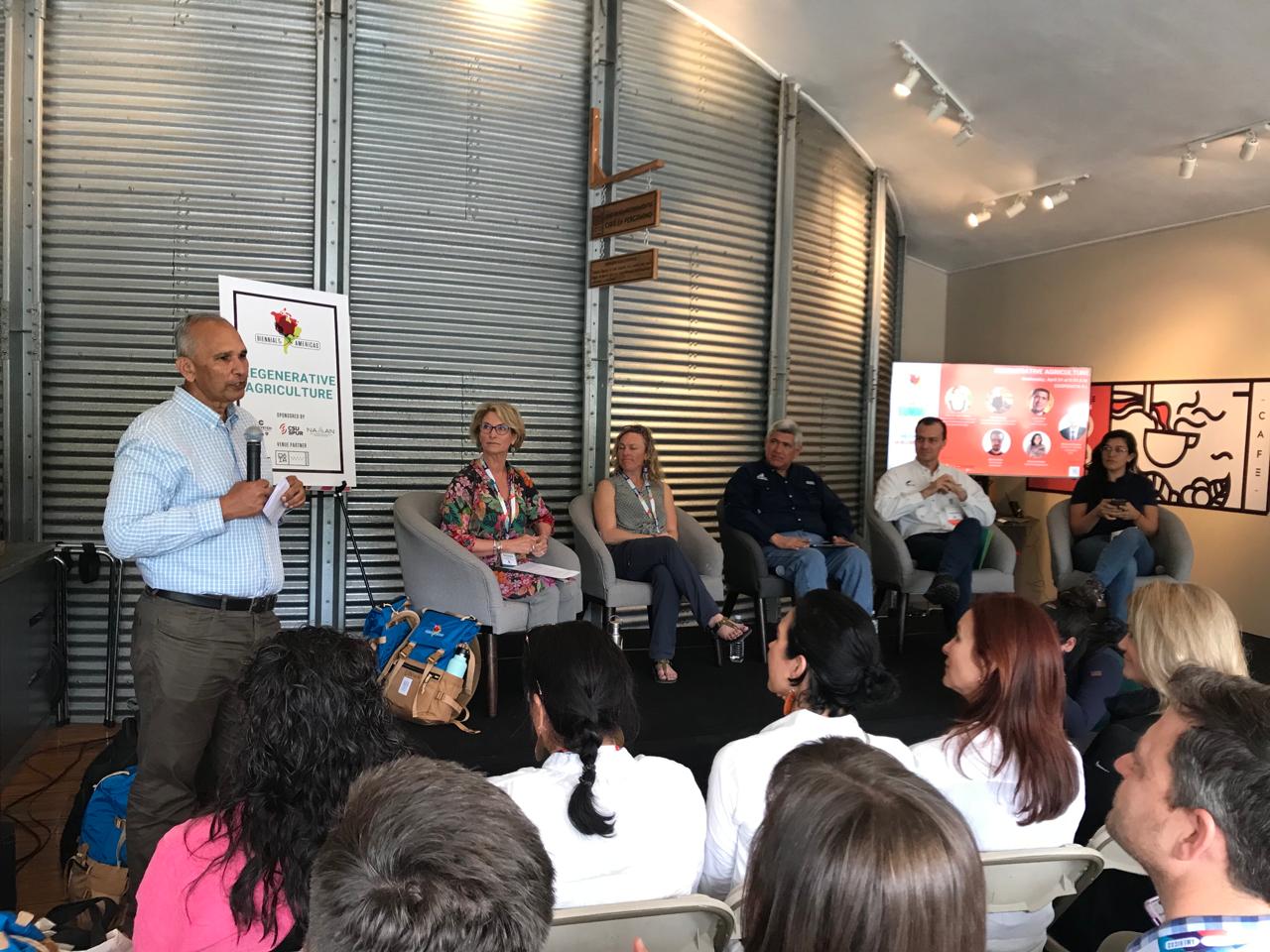Ibrahim presented the advances achieved by IICA with regenerative agriculture, and shared with the visitors the results of the first Meeting of Leaders of Rurality of the Americas. Held by the Institute in San José in April 2024, it brought together more than 40 leaders from all parts of the continent who make a key contribution to the promotion of sustainable landscapes.

San José, May 7, 2024 (IICA). Muhammad Ibrahim, Director of Technical Cooperation at the Inter-American Institute for Cooperation on Agriculture (IICA), gave a presentation to high-level officials and students from Colorado on the options available for addressing the issues of water scarcity and climate variability. He gave details of the advances in regenerative agriculture, the Living Soils of the Americas initiative, and the ongoing efforts related to the bioeconomy, family farming, and digital agriculture apps.
The United States delegation, taking part in the Biennial of the Americas’ 2024 Americas Summit in Costa Rica, consisted of 87 people who either study at Colorado State University (CSU) or hold high-level positions with the State of Colorado, including the Governor Jared Polis, and the State’s Commissioner of Agriculture, Kate Greenberg.
The visit was organized by Colorado State University (CSU) and the North American Agriculture Advisory Network (NAAAN).
IICA took part in a panel discussion on regenerative agriculture at the facilities of the COOPEDOTA cooperative, located in Santa María de Dota, in the Province of San José.
The goal was to determine how regenerative practices could help Colorado address its water scarcity and climate variability issues, while at the same time preserving biodiversity and promoting economic prosperity. The presentation showed how these problems are being tackled in Costa Rica’s tropical agriculture landscape.
Ibrahim presented the advances achieved by IICA with regenerative agriculture, and shared with the visitors the results of the first Meeting of Leaders of Rurality of the Americas. Held by the Institute in San José in April 2024, it brought together more than 40 leaders from all parts of the continent who make a key contribution to the promotion of sustainable landscapes.
“Regenerative agriculture is geared to the conservation of biodiversity, soil and water, and improves agricultural productivity through sustainable intensification and conservation of ecosystem services,” said Ibrahim, who took part in the panel discussion along with Sacha Trelles, technical coordinator of the IICA Delegation in Costa Rica, and Karen Montiel, an Institute specialist.
Ibrahim also addressed the challenges facing this country and the rest of the region in transitioning from large plantations of export crops to a more diverse kind of agriculture; and explained why collaborative approaches involving research, academia, the innovative private sector, and direct work with farmers were essential for progress to be made.
“There are good experiences in Costa Rica that show how to produce milk and meat sustainably, conserving pastures and soil and at the same time sequestering carbon. In this country, milk and coffee cooperatives serve as spaces that permit producers to obtain better prices, higher income, and good technical assistance, while reducing greenhouse gas emissions and improving soils. IICA is also working on innovative approaches to bioinputs designed to contribute to the circularity of the economy,” he added.
The summit organizers intend to engage further with IICA to discuss possible areas of cooperation.
More information:
Institutional Communication Division.
comunicacion.institucional@iica.int











